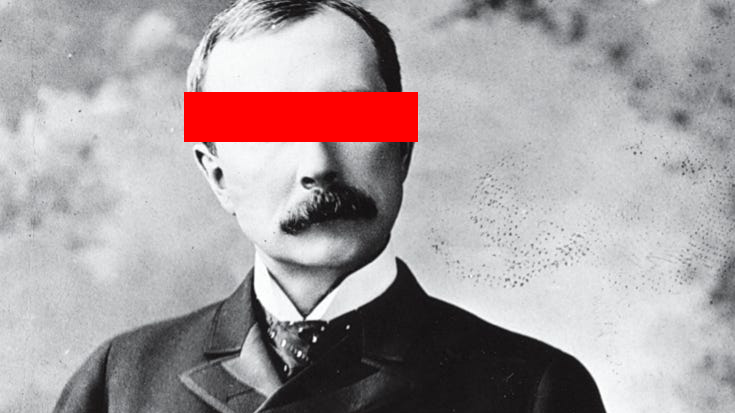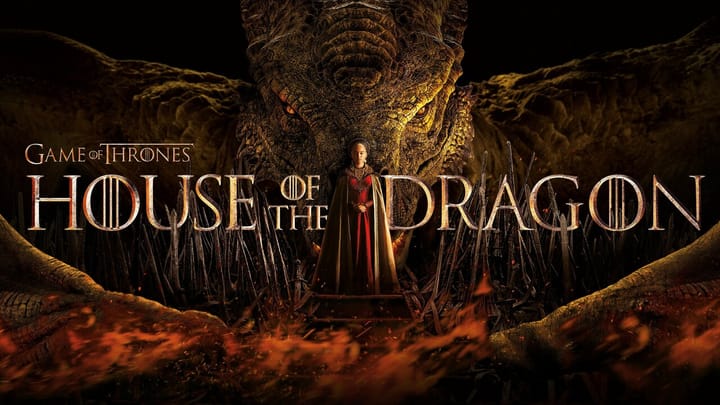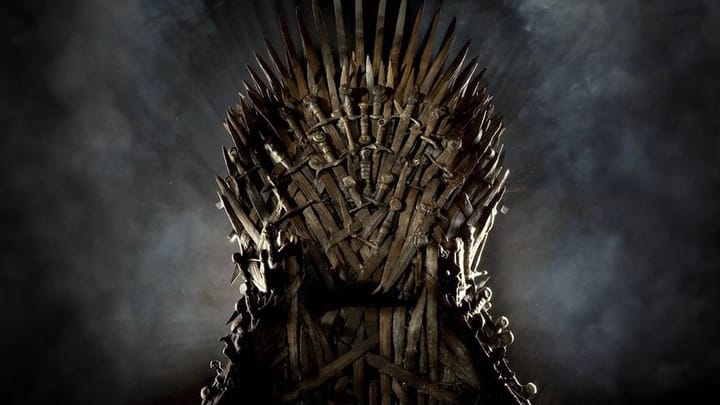The Blueprint 88
"I started working at age 12. By the time I was 15, I had to support my entire family."

Billionaire of the Week
Li Ka-shing is a Chinese businessman and investor. He is the richest man in Hong Kong with a net worth of $38 billion.
Lessons From Studying Li Ka-shing:
Lesson 1: Have Self-Confidence
- "When I was young, I appeared humble but I was inwardly very arrogant." – Li Ka-shing
- Li started Cheung Kong Plastics, a plastic manufacturing company, in 1950 at age 21 with $6,500 in savings and loans from relatives. The company made plastic flowers that looked like real flowers.
- "When times are tough, you need to ask yourself if you're up to it. During tough times, I've always thought I'm up to it because I'm hardworking, frugal, steadfast, willing to learn and build a creditable name. After age 17, I knew I had a good chance of starting my own business because I knew I'd been right in my beliefs." – Li Ka-shing.
- As soon as Li's property development business became successful, his goal was to beat the #1 company in the industry, Jardine Matheson Group, a Fortune 500 company that bought a ton of land in Hong Kong after World War II.
Lesson 2: Work Hard
- Li Ka-shing grew up during World War II.
- Li on primary school: "When my colleagues went to play, I went to study."
- "I became an apprentice at age 12. By the time I was 15, I had to support my entire family." – Li Ka-shing.
- "The burden of poverty and this bitter taste of helplessness and isolation sort of branded on my heart forever the questions that still drive me." – Li Ka-shing.
- He promised himself that he would work doubly hard for a good future: "while other people learned, I grabbed knowledge." When he was 14-15, he "took jobs no matter how lowly they were."
- In his teens, Li worked at a plastic manufacturing company and regularly worked 16 hour days.
- "I did my best at work and at increasing my knowledge."
- He retired in 2018 and said: "I've been working for a long time, too long." He started working at age 12 and retired at 89.
- Li Ka-shing's life philosophy: Always work hard. The virtuous welcome onerous duties. Seek improvement daily.
Lesson 3: Break the Rules
- Li Ka-shing allegedly does shady business deals with foreigners and bribes them.
- Li is a strategic international investor. He changes his nationality to downplay or up-play certain connections. He switched his nationality back to Chinese when the British economy was down and the Chinese economy was up. Then he stopped investing in Britain and invested in China.
Lesson 4: You Have About 5 Years to Capitalize On a New Technological Trend
- Plastic manufacturing emerged in Hong Kong in the 1950s and became a big industry in the 1960s and 1970s. In 1972, Hong Kong became the largest exporter of plastic toys in the world. Li Ka-shing was early – he founded his plastics manufacturing business in 1950.
- A key point: Manufacturing was not a boring old business in 1950 Hong Kong, it was cutting-edge technology.
Lesson 5: Steal Great Ideas
- Li got the idea to start a plastic manufacturing company from working at a plastic manufacturing company.
Lesson 6: Read Books
- "Reading does not guarantee a life of riches, but it does open up more opportunities." – Li Ka-shing.
- "Even today [as a wealthy old man], I still read every night." – Li Ka-shing.
- Even the successful will have hard times: "At the start of the 1990s, my decision was that we had to develop overseas, otherwise the future of the company would be limited because our business had run into considerable troubles."
- Li was asked in an interview how he beat the competition in business: "Whatever industry I get into I buy books about that industry."
Lesson 7: Be Frugal
- Li is known for being frugal. He wears a $400 USD watch that's intentionally set 30 minutes fast.
- "I'm hardworking, frugal, and steadfast." – Li Ka-shing.
- "Money may be spent but never squandered." – Li Ka-shing.
Lesson 8: Be a Business, Investment, and Political Strategist
- Li invests in a wide array of industries, including transportation, real estate, financial services, retail, and energy and utilities.
- Business, investment, and political strategy are the most important at the executive level: "Simply speaking, you are the commander in chief, the head of a group of armies. You will never be better with a machine gun than a machine-gunner or better with bombs than an explosives specialist. But as commander, you don't do these things. Your job is mapping out strategy, so good organization is very important."
- Li bought real estate with the money he made from the plastic manufacturing business he made at age 21. Why get into real estate? He saw that property prices are plummeting due to the riots in 1967. He thought that the property price decline was temporary. The investment was a huge success and made him one of the richest men in Hong Kong.
- One of Li Ka-shing's strategies is to build a creditable professional reputation. That means he wants to be widely known as a great property developer and investor, so other people will lend him billions of dollars to invest, so he can make even more money.
- When Li was 30, his plastics manufacturing company was very successful. He spent most of his time strategizing: "I was actually spending 20-30% of my time in the factory and the rest of the time devising what I should do in the future."
- He would IPO stocks just below the price that would lead to regulatory scrutiny.
- Li says real estate and property development are their most profitable business: "Through the years, property is, of course, the most profitable business."
- He invests in various assets: Li says it took him five minutes in December 2007 to decide to invest in Facebook, even though it barely had any revenues. He also invested in Siri and Spotify.
- To control media companies: He would pay for advertisements with media companies and then pull out of ad deals if they wrote any story that was negative. That creates a precedent where media companies won't say anything bad about you for fear of losing a big ad client.
- His goal was to become a true monopoly.
- Li started to reduce his risk in Hong Kong over 30 years ago by re-domiciling his principal holding company in Bermuda well before the U.K. handed its colony back to China in 1999.
- In 2015, when he restructured his business empire, he set up new holding companies in the Cayman Islands, well beyond the reach of the Chinese Communist Party.
- Your family should be your successors: Li Ka-shing's oldest son worked with him for decades in business before Li handed the company to him and retired.
Lesson 9: Understand Many Perspectives
- Li reads American business books.
- He's Western in business strategy but Eastern in religion (Buddhism) and philosophy (Confucius). "In terms of the way I run my business, I always use checks and balances. I think you must use a Western management model. But in terms of internal philosophy, I've adopted the most useful parts of the Confucian school of thought. Over the years, we've proven that it works well."
- "I have a deep knowledge of Buddhism."
- "I think it's important to have faith. I respect all the religions I know of."
Personal Life
- Later in life, when Li was rich, his son was kidnapped and held for ransom ($1 billion Hong Kong dollars). Li gave the kidnapper the money in cash. When the kidnapper was leaving, he asked Li for investment advice on the money he had just stolen from him. A few years later, the kidnapper was caught and the Hong Kong government gave the kidnapper the death penalty (which wasn't legal in Hong Kong, leading people to believe Li bribed someone in the government to give the kidnapper the death penalty).
- His childhood days were tough. He had no one to talk to. His parents were strict and wouldn't talk to him.
- At age 12, Li and his family fled China to Hong Kong. Two years later, his father died. They were poor–his dad had been a primary school principal in China and worked at a watch factory in Hong Kong.
- He wakes up at 5:59 every morning to listen to the news on the radio.
- He plays golf after the news for an hour and a half.
- The rest of the day is spent on business and work.
- Charity = happiness. At age 30, despite his success (he had enough money to retire and support his whole family), Li said he wasn't happy. So he decided to donate 1/3 of his wealth. Chinese people typically leave their money to their children, not to foundations or charities.
- "Children of wealthy families grow up in a greenhouse. Even if they're a big tree, their roots are not strong. If you spoil kids, they'll have a hard life ahead. When they run into hard times, they'll be helpless." – Li Ka-shing
Videos of the Week
A Great Animated Lesson
Stress and Anxiety Management by Scott Adams
The Best Documentary on the FTX/Sam Bankman-Fried Scandal
A Great Conversation Between Naval Ravikant and Scott Adams from 2018
TED-Ed Video on Car Engine Efficiency vs. Electric Cars



Comments ()